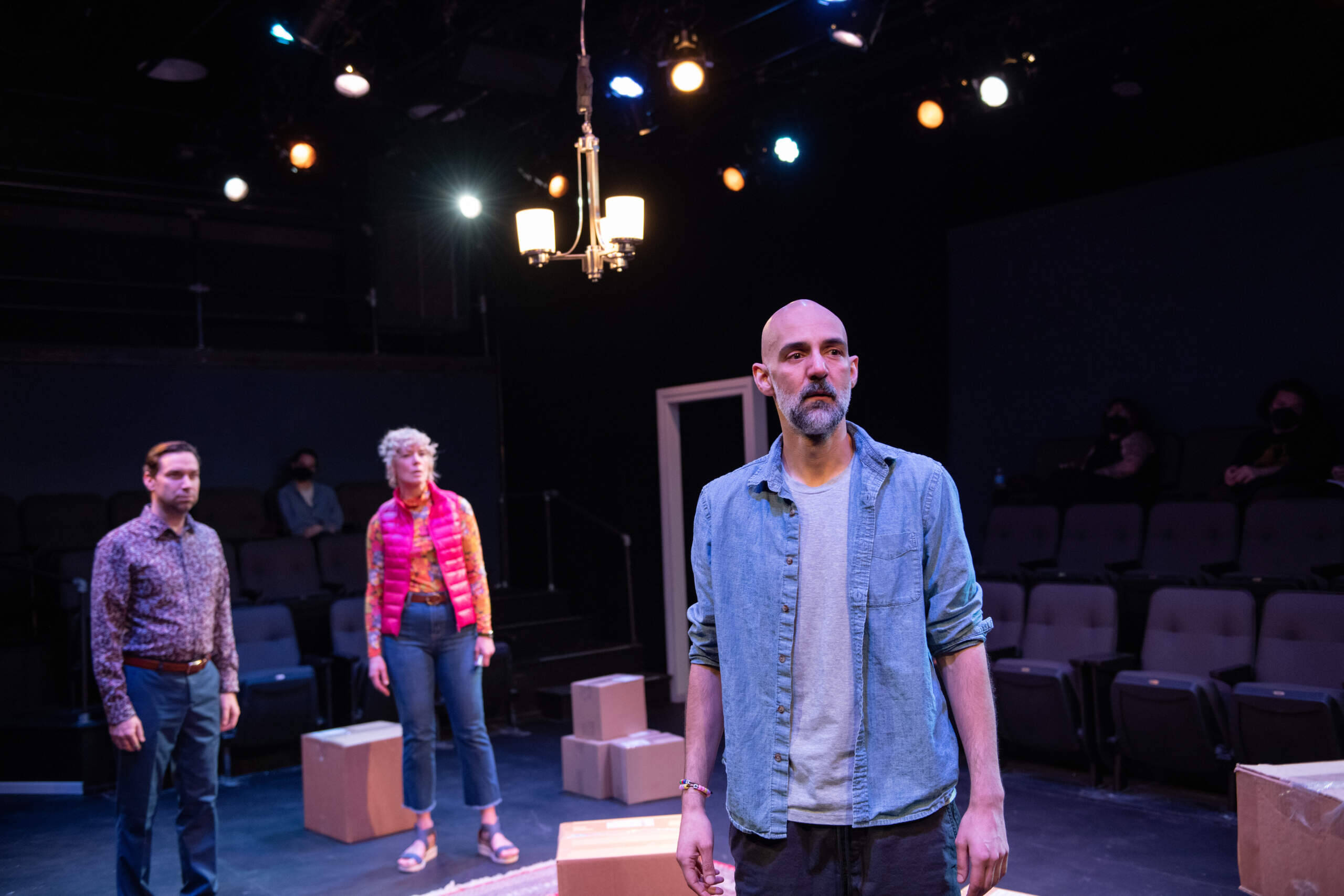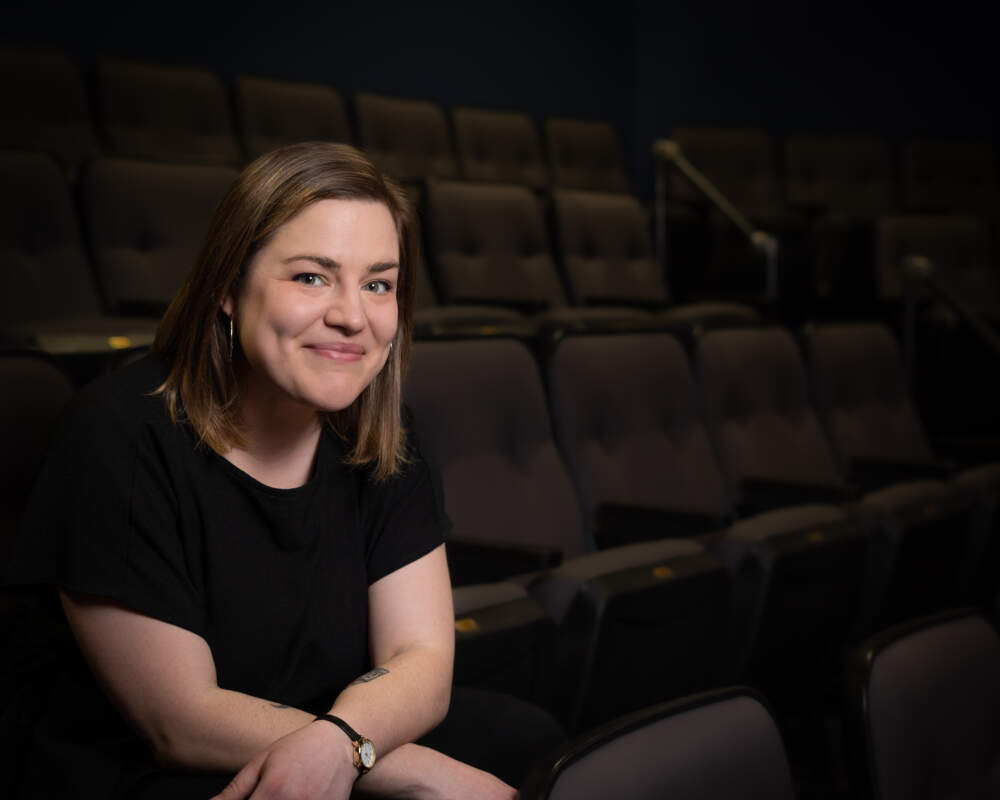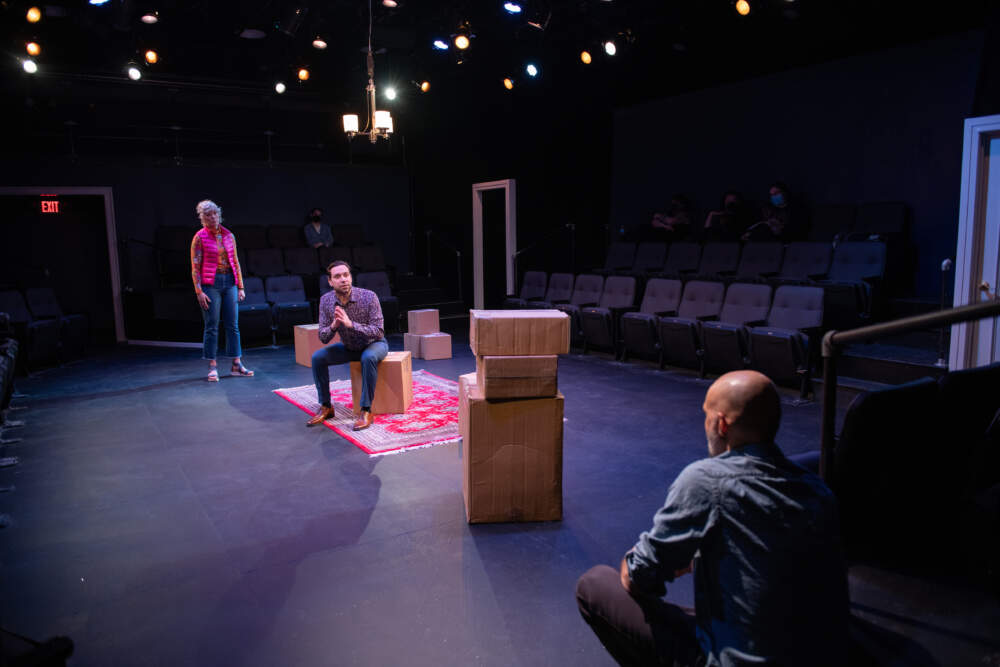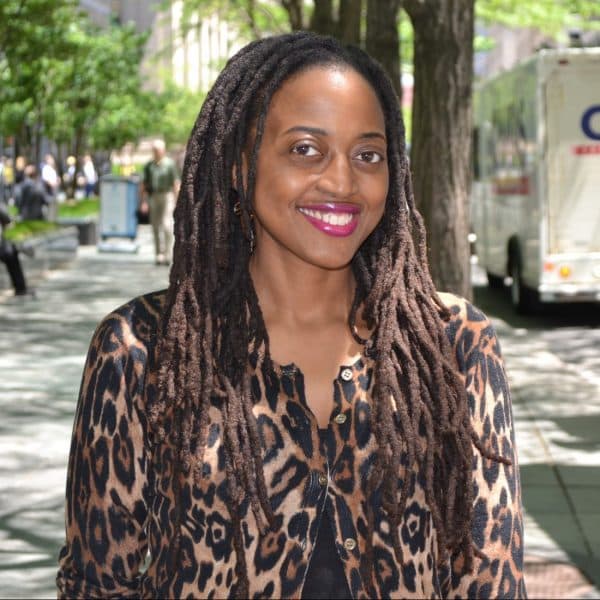Advertisement
New play 'The Ding Dongs' leans into the uncomfortable moments

The title of Brenda Withers' play "The Ding Dongs" recalls the prank Ding Dong Ditch where pranksters ring a doorbell and make a run for it before the homeowners can open the door. In Withers' tale, though, the folks ringing the doorbell have no intention of running away. A seemingly innocuous suburban-looking couple — Joe (Karl Gregory) and Natalie (Erica Steinhagen) push their way into Redelmo's (Elliot Norton Award-winning Nael Nacer) house after ringing his doorbell and have no desire to leave.
This frightening start to the show at Gloucester Stage Company, which runs from Aug. 11-27, isn't the end of the couple's hijinks. There's something strange about this duo who use twisty language to "destabilize" the homeowner and get their way, says director Rebecca Bradshaw. Through this encounter, the narrative digs into larger themes about ownership, power, intimidation and displacement. Bradshaw, whose credits include Lyric Stage Company's "The Treasurer" and Nora Theatre Company's "Photograph 51," recently directed this play at Kitchen Theatre in New York with the same cast in 2022.
In the below Q&A, Bradshaw shares what she and the cast have discovered this time around, what she looks for when directing a play and what this play can teach audiences about relationships. (This interview has been condensed and edited for clarity.)
How has your approach changed as a director this time around?
Rebecca Bradshaw: So, I think my approach originally was, we're just going to do it again and go deeper. But I think everyone should do a play twice because we're finding so many extra layers. We're finding things we discovered, [or] that the actors discovered in the run. After the director leaves, the actors have a life with a play that I'm not necessarily a part of.
Plus, we're all different people. Six months have passed, and things have changed. Something that we've noticed is there's a lot more conversation about AI and ChatGPT right now. We used to joke about how sometimes the language [in the play] feels like the couple went through Google Translate. Sometimes the language feels inconsistent and a little strange, and it makes your ears perk up.

Can you talk about a specific moment or scene that might have changed from the first time?
Our first take [on the couple ringing the doorbell] was that they were just very odd. They're very strange and kind of out of the ordinary, perhaps a little robotic and a little inhuman. This time, we're humanizing them a bit more. We're adding a layer of humanity to them because I found it in watching the play over and over. I want the audience to be able to change sides or see it from both sides. In the first one, we leaned into the horror of this couple and the ridiculousness of this couple, and now I'm trying to lean more into their humanity.
This play is a thriller. Can you share some of the ways this couple frightens the homeowner?
Absolutely. I think the language is very twisty. The language makes the owner's stomach twist in knots. The language is constant. They're constantly destabilizing him. For instance, there's this moment when the husband is talking about when his younger brother fell on the stoop when he was a kid, and he didn't do anything about it, and he feels ashamed. Then when the wife asks what tooth he chipped, the husband says, "His own." And it's just like this odd turn. That's not how you would speak English. Or that's not how you would speak as a human. Throughout the rehearsal, we would always talk about "Are they human?" "Are they aliens?" "Are they robots?" "Are they con artists?" "Who are these people?" So the entire time, you're wondering whether there's a motive.
Also, there are little breadcrumbs throughout the play of them [the couple] talking about something that happened to them. You don't know what it is until, you know, the crux of the play, so there's always this kind of foreboding that they're referencing throughout.
Advertisement
What would you say are the things you look for when it comes time to direct a play? Is there a throughline?
I love experiencing plays and reading plays and directing plays that sit with me for a while. I think a successful production is when somebody is thinking about a scene, a moment or a thought they got from a play while drinking their coffee two weeks later. So that's the visceral response [I have] when I think about really good plays. As far as a throughline, I always look for plays that question the world around us. I deeply believe that plays are political. As a director, I'm putting a play on a metaphorical or an actual pedestal on the stage and saying look at this; this is important; listen to these people. I think that this needs to be intentional. So I always try to find plays that, either as an artistic director or director, question the world around us.

What, if anything, do you think the play is aspiring to teach us about human relationships?
There's a big conversation about property in this play and what we own as people. But then it also talks about who gets [what] and who gave us the power to own that. Why do we follow those rules? I think when you walk away from this play, there are connections to references to stolen land from indigenous people, but also different types of property loss. At the end of the day, this play's a home invasion play. It's about a couple who doesn't leave. What is our right to be there in that moment?
What do you hope audiences think, feel or understand when viewing this play?
I think they're going to walk away a little shocked. I think it pokes us into uncomfortable conversations, which I think the best art does. I hope they think about the world around them and the privilege we have to be on this earth. Let's take care of it a little bit better and take care of the people who paved our way to be where we are now. But I also hope people laugh in a way, [ranging from] a guffaw to a cackle. And then I hope they're uncomfortable at times. I think moments of discomfort teach us what we need to learn more about. I hope that [it] creates conversations in their own life with the other people they came to the show with.
Gloucester Stage Company's "The Ding Dongs" runs Aug. 11-27.
